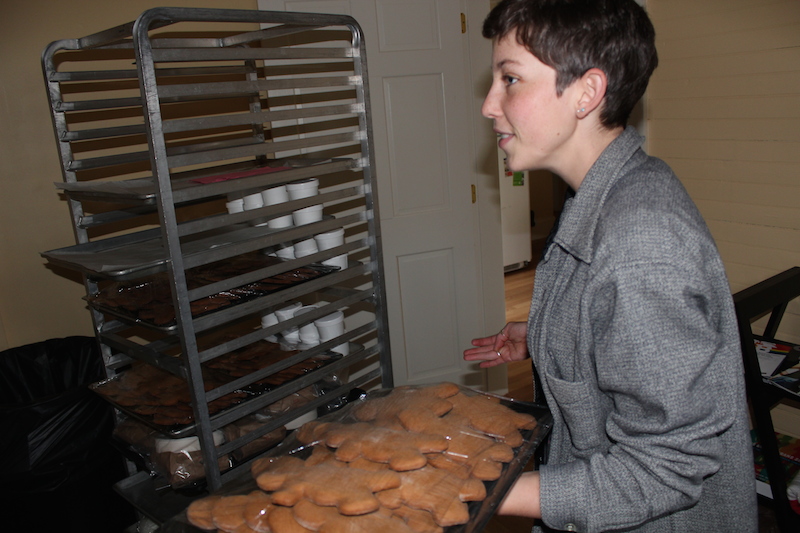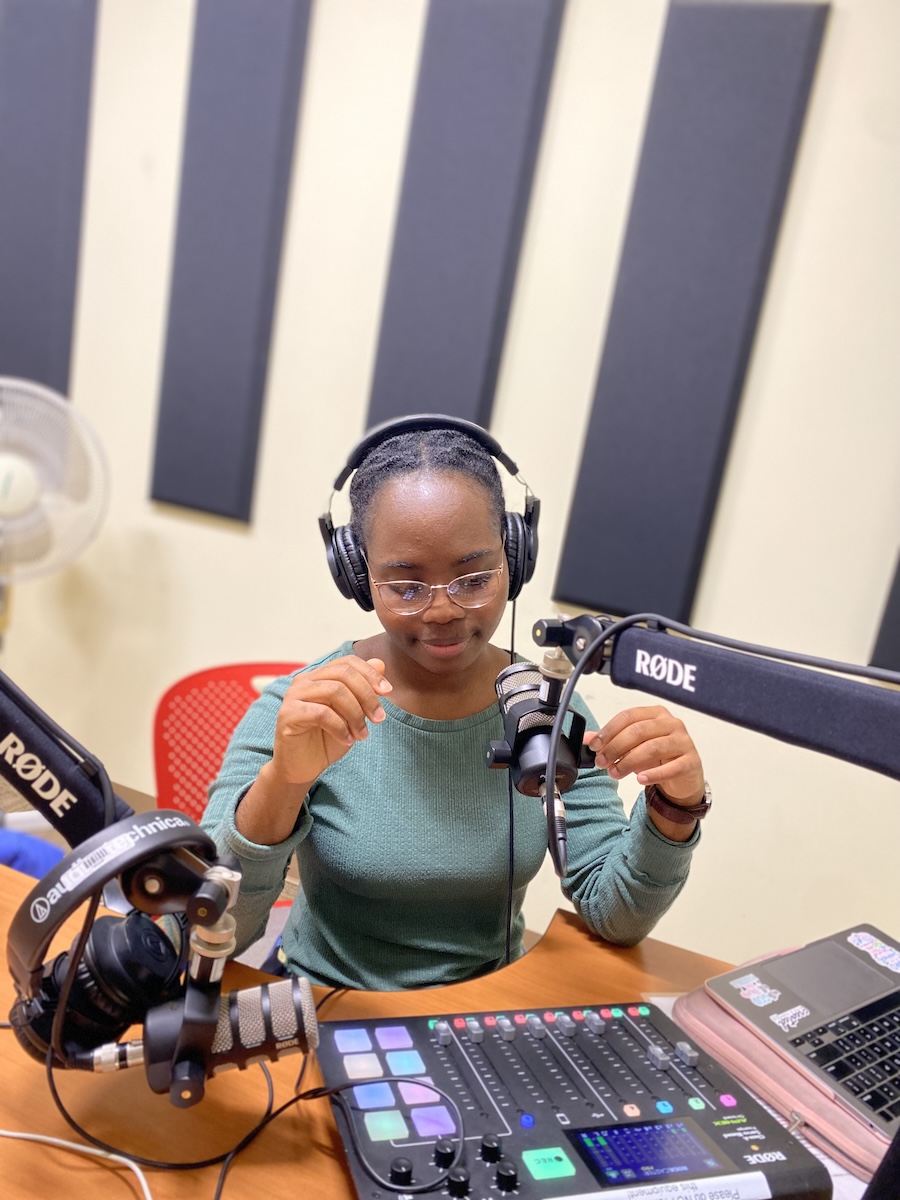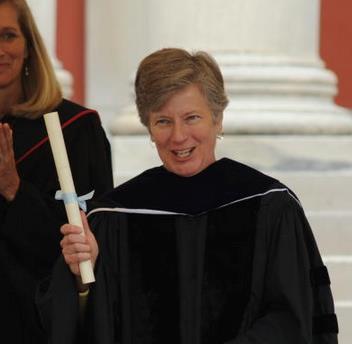Genderbread Cookies and Answers to Questions at Bowdoin's Trans Day of Visibility
By Rebecca Goldfine
Bowdoin students sweetened discussions around issues of gender by decorating “genderbread cookies” and serving them at two campus events they organized to mark International Transgender Day of Visibility on March 31.
Jude Marx ’18, who works for the Center for Sexual and Gender Diversity, prepared the cookies to give to “Out in the Bricks” mentors. The mentors are all OUTPeers, students trained to offer support on campus. The mentors delivered the baked goods to first-year dorms and provided information about the ways people experience and express their gender.
“The idea is that it’s a way of getting people to think about gender identity, especially people who don’t think about it very much and in a way that involves food. That’s always fun, and very Bowdoin,” Marx explained. “You can decorate yourself and your gender identity, and your identity in general, by decorating a genderbread person.” Toppings included chocolate chips, coconut, M&Ms, raisins, and icing.

Marx’s helper, Paul Cheng ’17, said the Day of Visibility is designed to celebrate transgender and non-binary people, in contrast to the other national day for transgender people, the Day of Remembrance. That day remembers “those killed by violence, and people wanted something more positive. So Trans Day of Visibility,” Cheng said.
Students from Gender Matters, a group of students who meet at the Center for Sexual and Gender Diversity to talk about gender identity, also organized a Transgender Awareness Tea with a panel discussion. Rayne Sampson ’18, Rose Etzel ’19, Jesse Ortiz ’16, Eriq Byrne ’19, Noah Dubay ’19, Paul Cheng ’17 and other students participated in the panel, answering submitted questions as well as questions from the many students, staff and faculty who attended the event. Julian Tamayo ’16 moderated the discussion.
The student panelists first spoke about how they experience gender. Their answers varied. “If you think about a spectrum and a point on the gender spectrum, my dot is fluid.” “I identify as agender.” “I see myself as a person above all other things.” “I respond to any and all pronouns.” “In terms of gender, I’m like an electron cloud.” “I identify as non-binary.” “I’m always surprised when people don’t think about gender all the time. I’m like, ‘Wait, that’s a given for you?'”
The panelists also discussed their experiences coming out, and they offered some advice. “It’s never the right time to come out to anyone. You just have to be careful about how it comes out.” “I came out to my friends on Facebook messenger. Feeling like you have control over what you’re going to say is important.” “At Bowdoin, I feel comfortable and happy telling people who I am.” “When I came out to my friends, it was very positive. But it takes time for people to work new pronouns into their speech.” “My experience [at Bowdoin] has been overwhelmingly positive. Everyone has been willing to listen. That’s something I have found not to be true in other places.” “It’s not just a one-time thing, coming out. It’s an ongoing, painful and tiring process. But knowing I’ve been true to who I am makes up for the stress of having to rearticulate it all the time.”
The students spoke, too, about what others can do to make it easier for them. The panelists agreed that they appreciated professors who ask for their preferred pronouns. Cheng said that sympathetic people should probably not walk up to someone they think might be transgender and tell that person, “I think you’re brave!'” First, they might be wrong in their identification, Cheng joked, before adding, “We also don’t need someone patting us on the back for existing.” Sampson followed, “I think it would be much better to try to change the system so we don’t have to be brave.”
Reporting by Talia Cowen ’16



